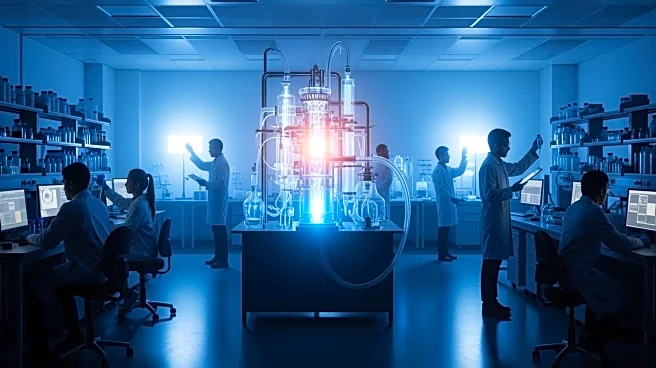What's Happening?
Researchers at Rensselaer Polytechnic Institute (RPI) in New York have developed a regenerated cellulose (RC) membrane that outperforms commercial chromatography columns in purifying mRNA therapies. This
membrane is faster and more efficient, potentially reducing the costs of mRNA production. The RC membrane uses peptide ligands to selectively bind to specific sections of mRNA molecules, allowing for efficient purification. By adjusting the charge on the membrane surface, researchers can unbind desired mRNA or impurities for future use. This innovative process has led to a patent application, and the team is seeking industry collaborators to commercialize the technology.
Why It's Important?
The development of this RC membrane represents a significant advancement in the purification of mRNA therapies, which are crucial for vaccines and other medical treatments. By improving the efficiency and speed of purification, this technology could lower production costs and increase the availability of mRNA-based therapies. The ability to selectively bind and unbind molecules enhances the precision of the purification process, potentially leading to higher quality and more effective treatments. This innovation could attract interest from pharmaceutical companies looking to optimize their production processes and reduce costs.
What's Next?
The research team at RPI is actively seeking industry collaborators to help perfect and commercialize their purification process. Successful commercialization could lead to widespread adoption of this technology in the pharmaceutical industry, enhancing the production of mRNA therapies. As the team continues to refine their technique, they may explore additional applications for the RC membrane in other areas of bioprocessing, potentially leading to further innovations in the field.









